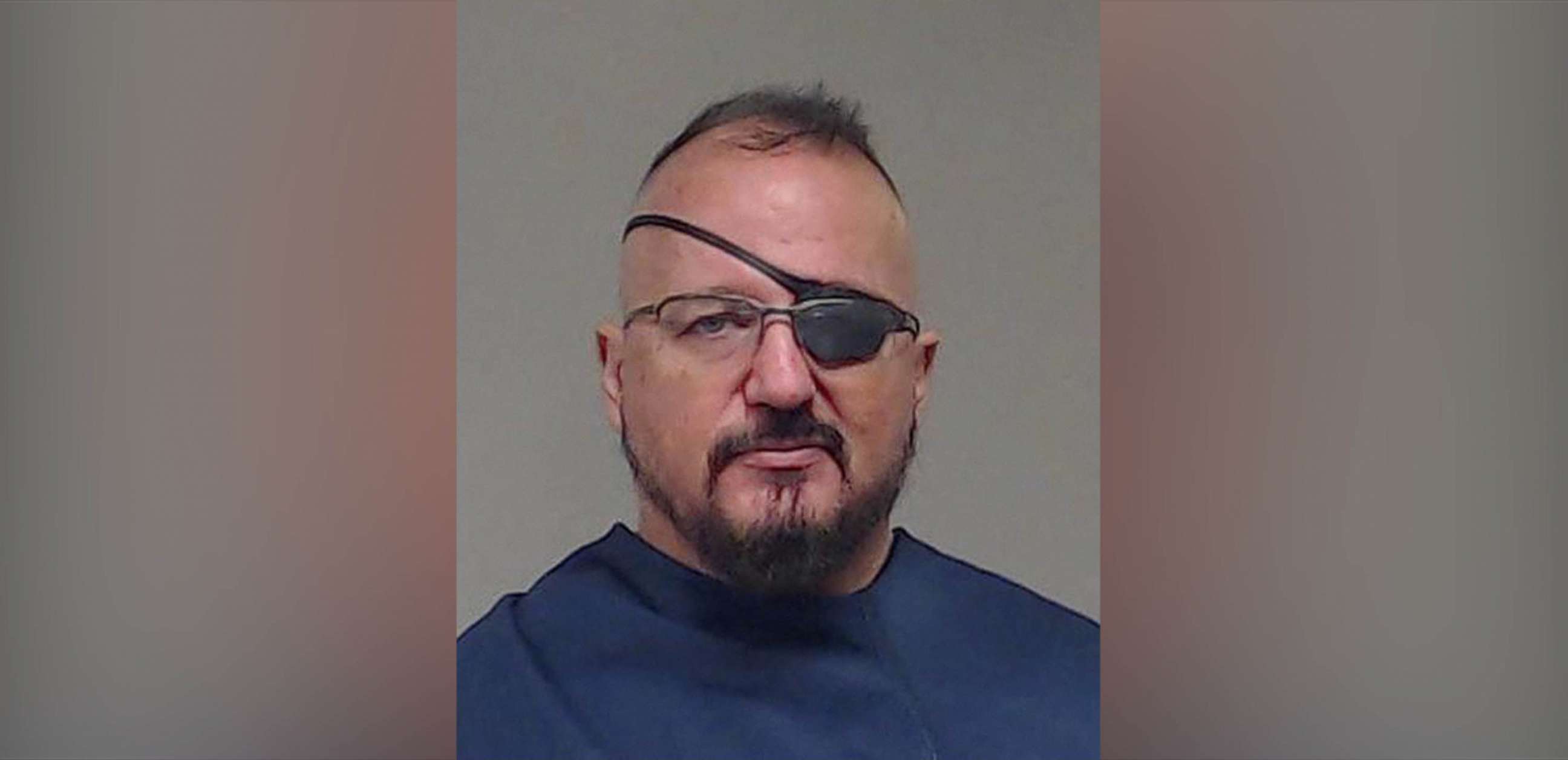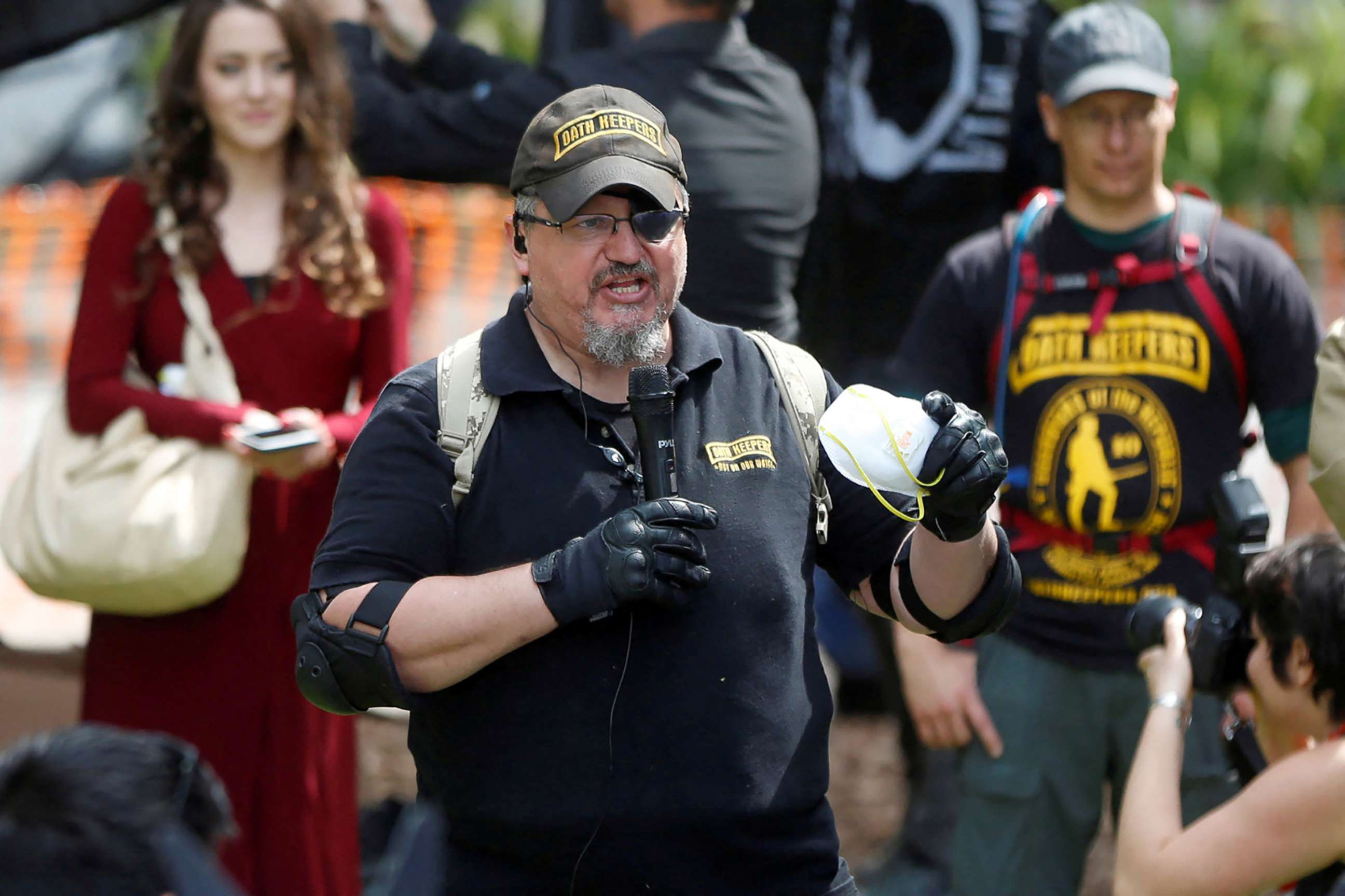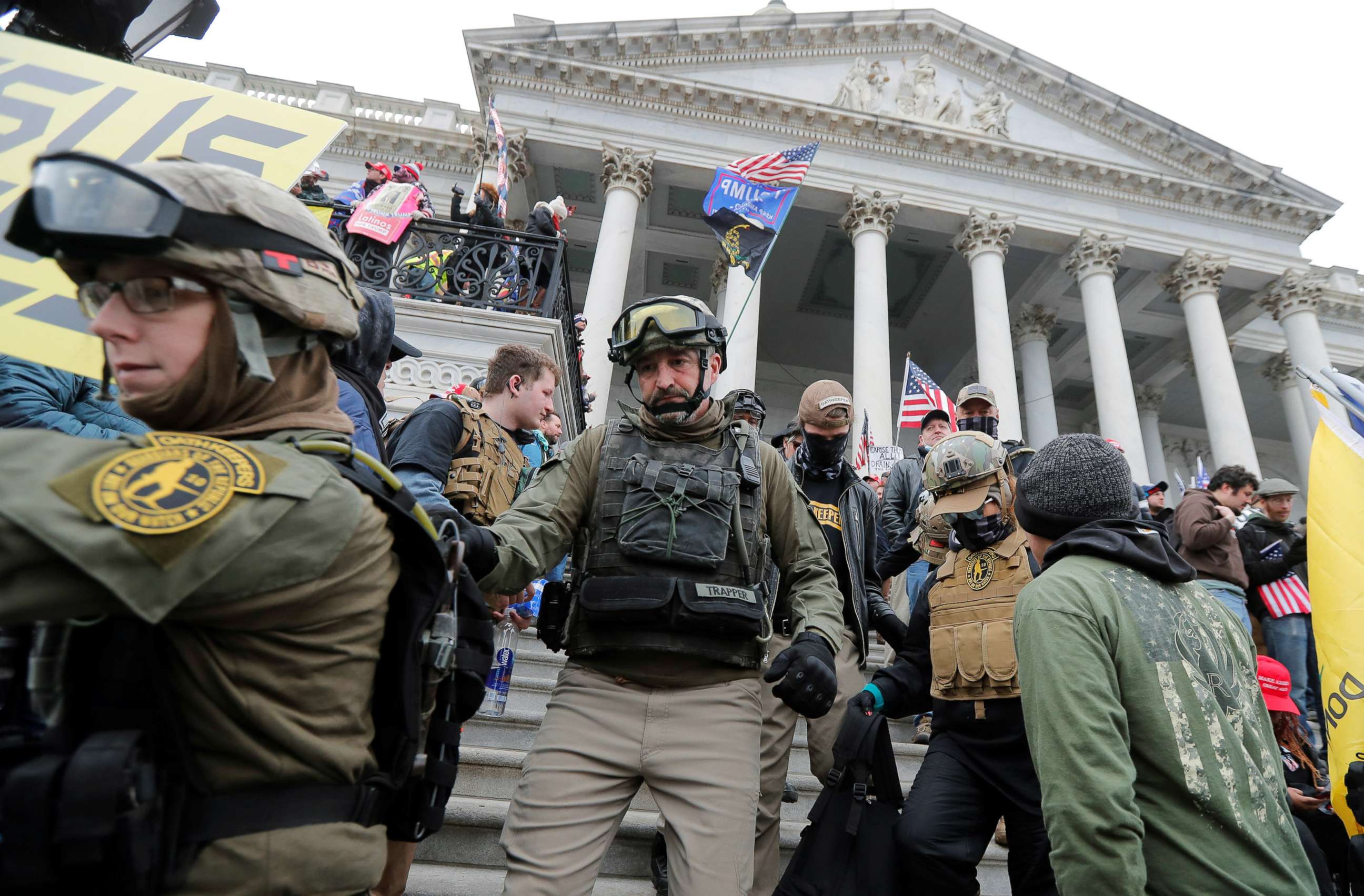FBI arrests Oath Keepers leader on charge of seditious conspiracy involving Jan. 6 attack
This marks the first Jan. 6 indictment using the seditious conspiracy charge.
The Justice Department has unsealed a major indictment charging the leader of the Oath Keepers militia group along with multiple other members with seditious conspiracy related to their alleged coordination in advance of the Jan. 6 attack on the U.S. Capitol.
The three indictments mark the Justice Department's first Jan. 6 use of the seditious conspiracy charge, which accuses Oath Keepers leader Stewart Rhodes and other members of the group of conspiring to "oppose by force the execution of the laws governing the transfer of presidential power" from outgoing President Donald Trump to incoming President Joe Biden.
Rhodes was arrested in Little Elm, Texas, according to the U.S. Attorney for the District of Columbia.
A lawyer representing Rhodes told ABC News that Rhodes was arrested while he was preparing for a virtual appearance Thursday before the House committee investigating the Jan. 6 attack. Attorney Jonathon Moseley said he was on the phone with Rhodes discussing the House investigation when Rhodes received a call from the FBI to come out of his house with his hands up in order to be arrested.

A conviction on the charge of seditious conspiracy carries a maximum sentence of no more than 20 years.
Before today, the Justice Department's case targeting 17 members of the Oath Keepers was already the department's largest and most complex conspiracy case resulting from the Jan. 6 attack. Three other members of the Oath Keepers charged as part of the conspiracy have already pleaded guilty and entered into cooperation deals with the government.
Rhodes, who is not believed to have entered the Capitol but was seen with several of the defendants gathered outside on Capitol grounds both before and after they entered the building, has denied any involvement in urging the group to storm the building and has said he believes it was wrong for the members of the group to do so.
In previous court documents in the conspiracy case against the Oath Keepers, Rhodes was repeatedly referred to as "Person 1" as prosecutors outlined his communications to members in advance of Jan. 6.

Several members of the group are alleged to have stashed heavy weapons at a hotel in Virginia and positioned a so-called "Quick Reaction Force" that would come to Washington in the event of significant violence or if former President Donald Trump invoked the Insurrection Act.
"The charges against Stewart Rhodes send a strong message about the criminal conspiracy he was engaged in," Javed Ali, the former senior counterterrorism director at the National Security Council and a former FBI and DHS official, told ABC News. "While there is no crime of domestic terrorism under U.S. law, the seditious conspiracy charge that Rhodes and others will now face is one of dozens of crimes under the terrorism enhancement statute, which could boost the amount of years he and other defendants face if these cases go to trial and the U.S. government wins."
The new charges come a week after Attorney General Merrick Garland delivered remarks to the Justice Department's workforce on the federal investigation into Jan. 6, in which he pledged that all those "criminally responsible" would be held to account, "at any level."
"We build investigations by laying a foundation," Garland said in the remarks. "We resolve more straightforward cases first because they provide the evidentiary foundation for more complex cases. Investigating the more overt crimes generates linkages to less overt ones. Overt actors and the evidence they provide can lead us to others who may also have been involved. And that evidence can serve as the foundation for further investigative leads and techniques."

As alleged in the indictments, the Oath Keepers are a large but loosely organized collection of individuals, some of whom are associated with militias. Though the Oath Keepers will accept anyone as members, they explicitly focus on recruiting current and former military, law enforcement, and first-responder personnel. Members and affiliates of the Oath Keepers were among the individuals and groups who forcibly entered the Capitol on Jan. 6, 2021.
ABC News' Will Steakin contributed to this report.




